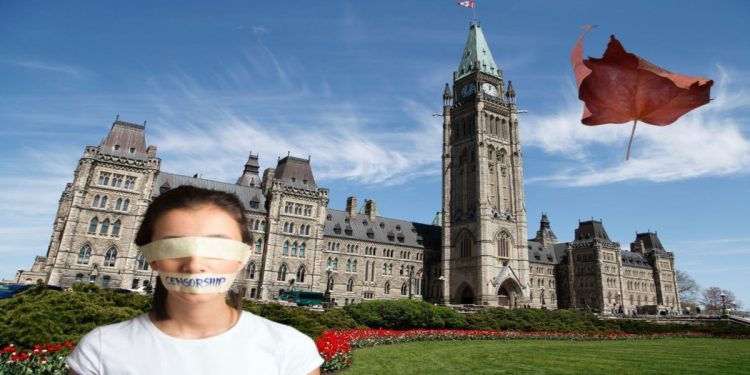The Canadian Parliament has become the latest worldwide player in a growing tug-of-war to stem the stream of “misinformation” infiltrating the digital landscape.
The House Ethics Committee in the North American province of Ottawa is pushing for harsh penalties to be imposed on Big Tech companies accused of spreading “unverified” or “deceptive” content online. We all know that means only X (Twitter) and Rumble. All leftist tyrants are alike in the end.
Censorship, a silencing tool, poses a grave threat to societal health. By strangling the flow of information, it not only robs individuals of autonomy but also fosters ignorance, undermining informed decision-making crucial to personal and communal growth. When authorities filter reality, propaganda flourishes, replacing truth with potentially harmful narratives. This intellectual oppression stunts societal progress, breeds discontent, and fuels mistrust among citizens, crippling the very fabric of the community. Moreover, the psychological impact of suppressed expression stifles creativity and innovation, ultimately leading to a climate of fear and stagnation that resonates through every stratum of human existence.
Censorship’s impact often echoes through history, underscoring its peril. For instance, during the Soviet Union’s grip, censorship obscured the true extent of crises like the Chernobyl disaster, exacerbating mistrust and panic and endangering countless lives through withheld information. In a different vein, the suppression of medical findings and research in various scenarios — for instance, the initial mishandling of HIV/AIDS information and other recent pandemics impeded prompt, potentially life-saving responses. Moreover, in the digital realm, the Great Firewall of China restricts online discourse, impoverishing the intellectual landscape and denying citizens critical perspectives on governance, human rights, and global events. These examples collectively attest to how censorship’s obstruction of ideas can breed catastrophic personal and societal consequences.
These were evil regimes. And now you can add the Canadian government to the list.
The Committee’s orders follow a ten-month study that focused mostly on the growing worry about foreign meddling, particularly from powerhouse nations like China and Russia. Throughout the investigation, it convened eight separate public consultation meetings, with feedback from 23 significant witnesses.
VISIT OUR YOUTUBE CHANNELWATCH:
The Committee’s vice chair, Bloc Quebecois MP Rene Villemure, stressed the urgency of swift action, reflecting a similar contentious legislative battle seen in the European Union, which has established considerable internet laws to control the spread of digital falsehoods.
“At some point, companies will have to understand that they’re actors and they’re not the government,” said Villemure.
“What happens online is basically shaping society, and if we’re not acting in a decisive manner, they will shape society to the bottom.”
Villemure does not specify a strategy but looks to the European Union as a possible example. He is referring to the European Commission’s recent prudent testing of new digital regulations amid the Israel-Hamas war.





















